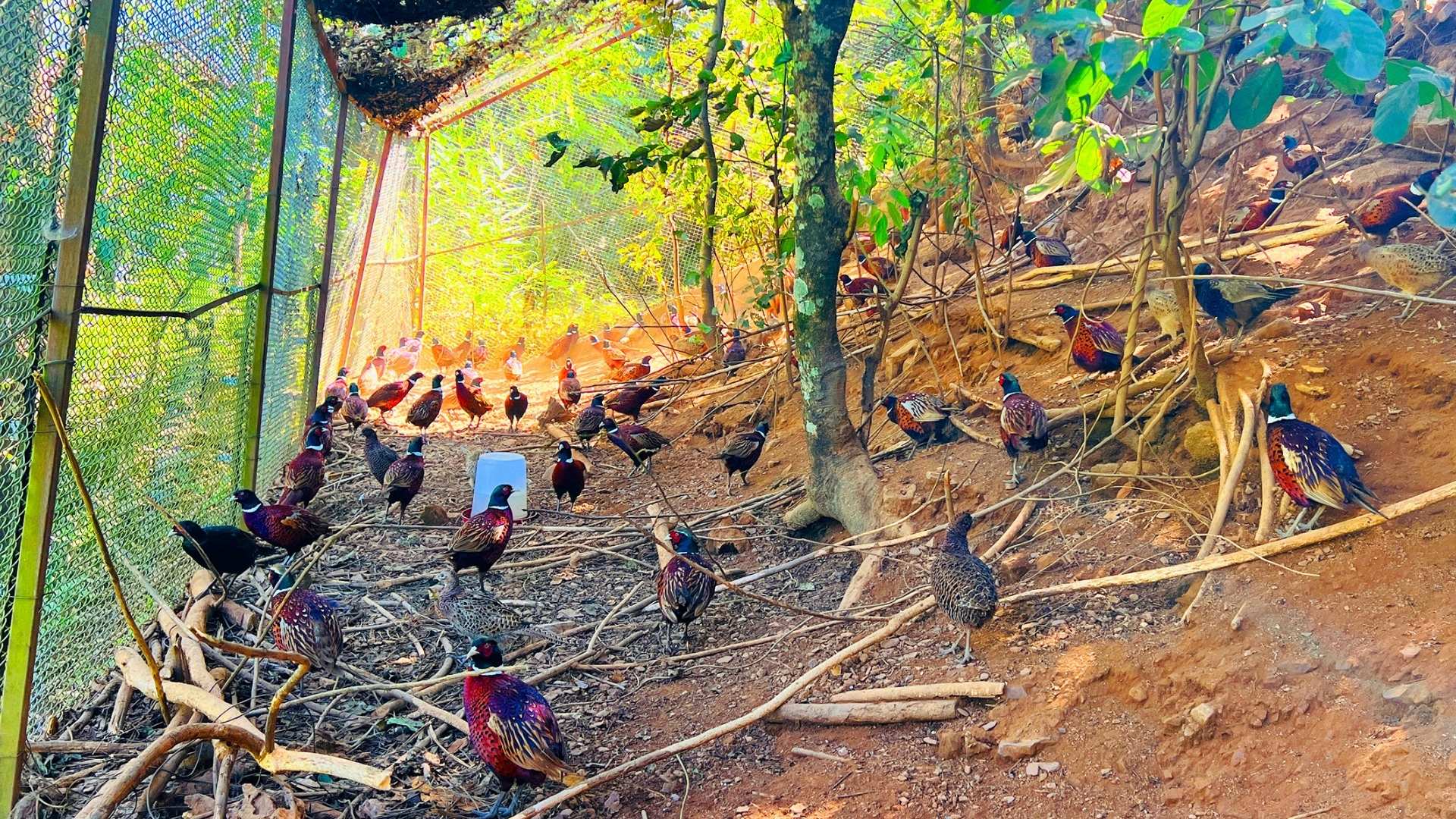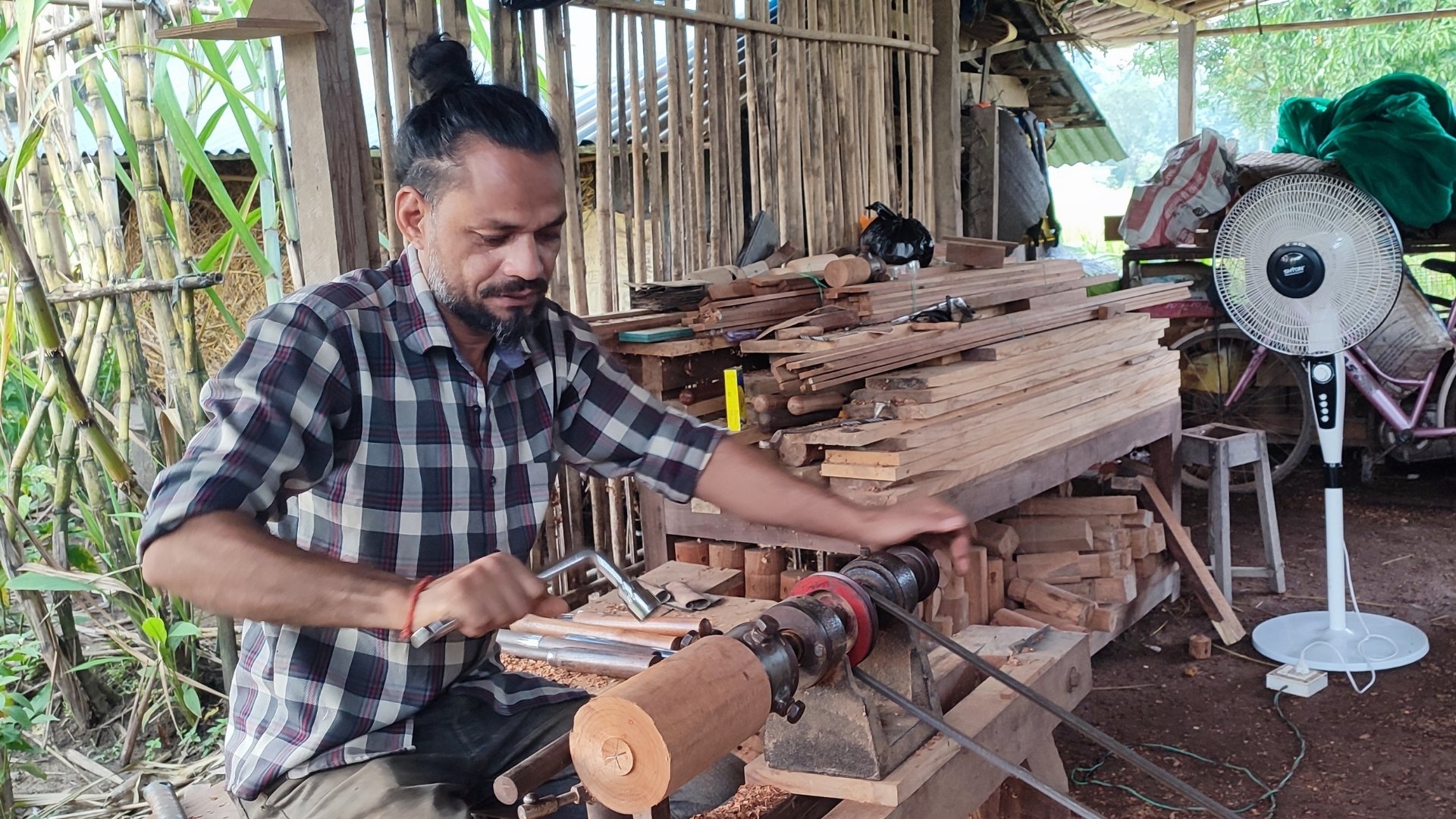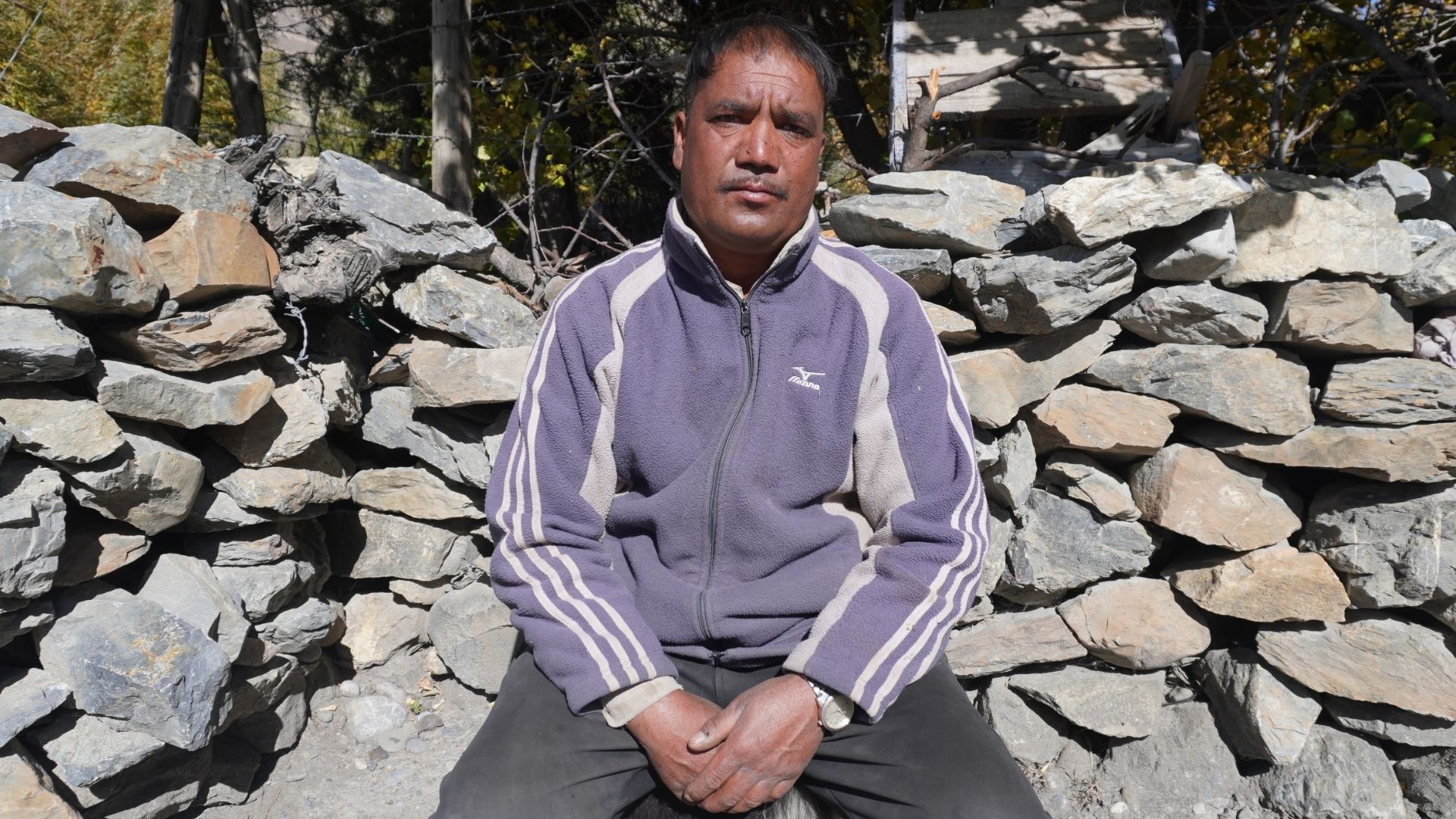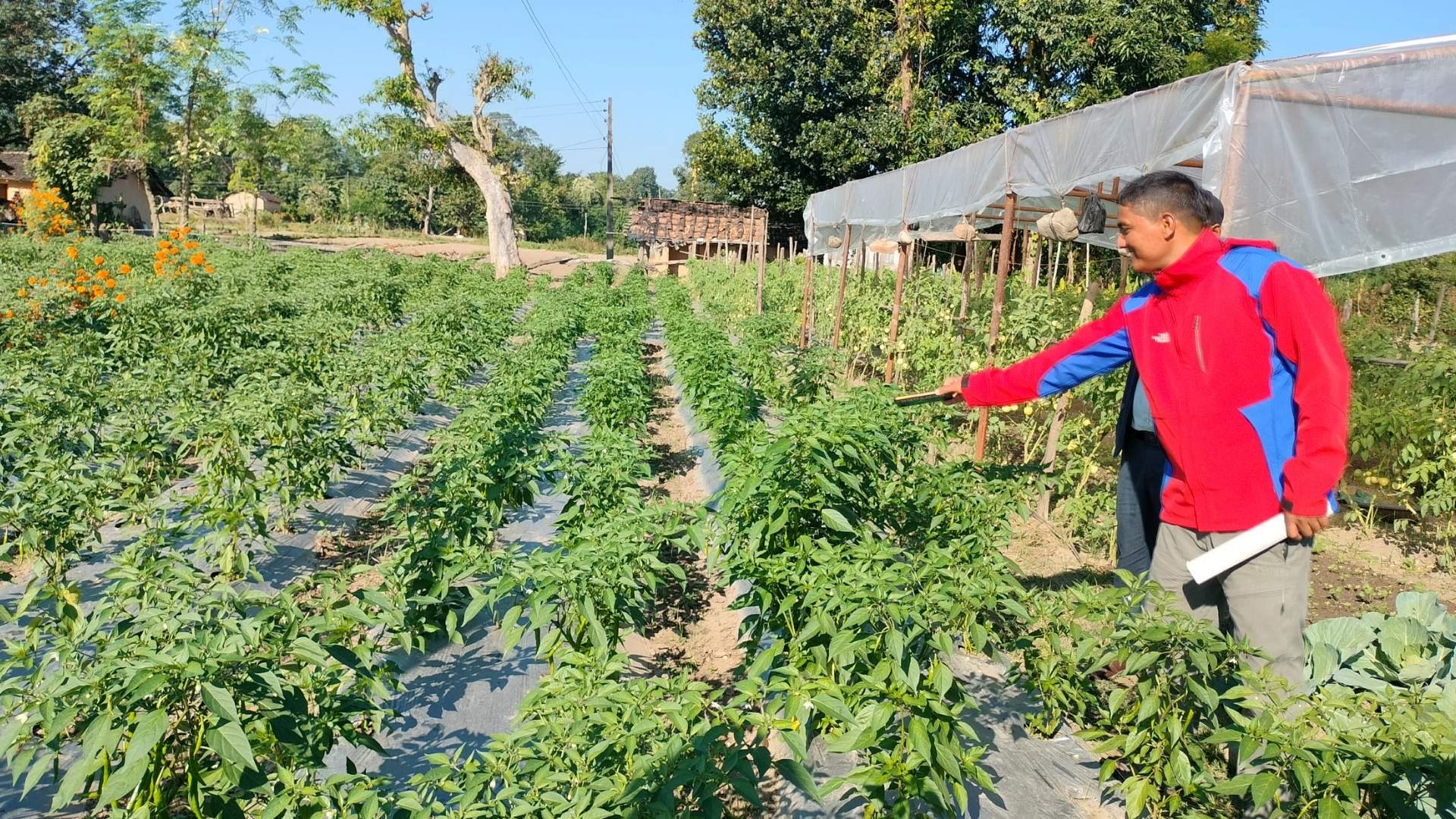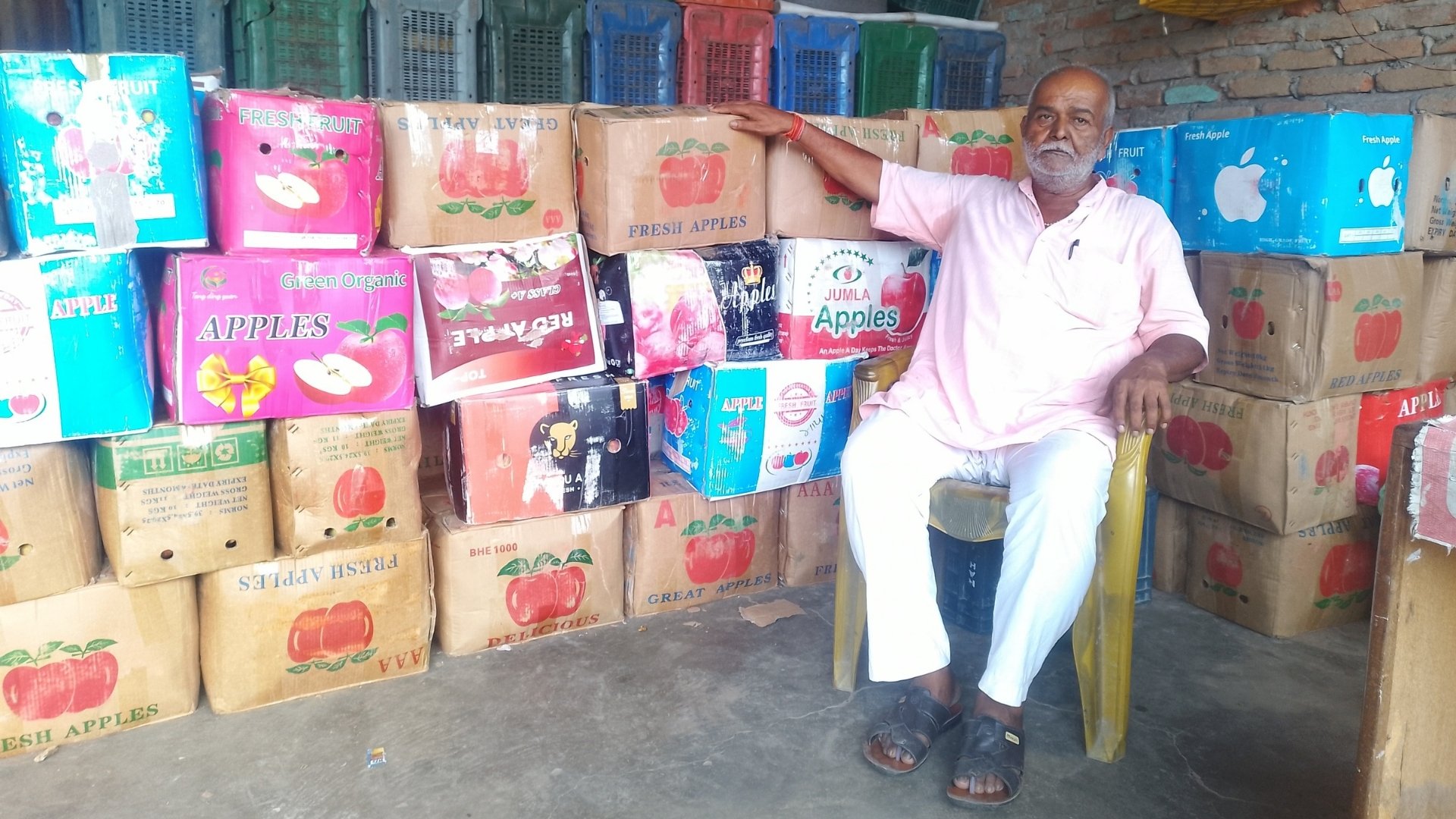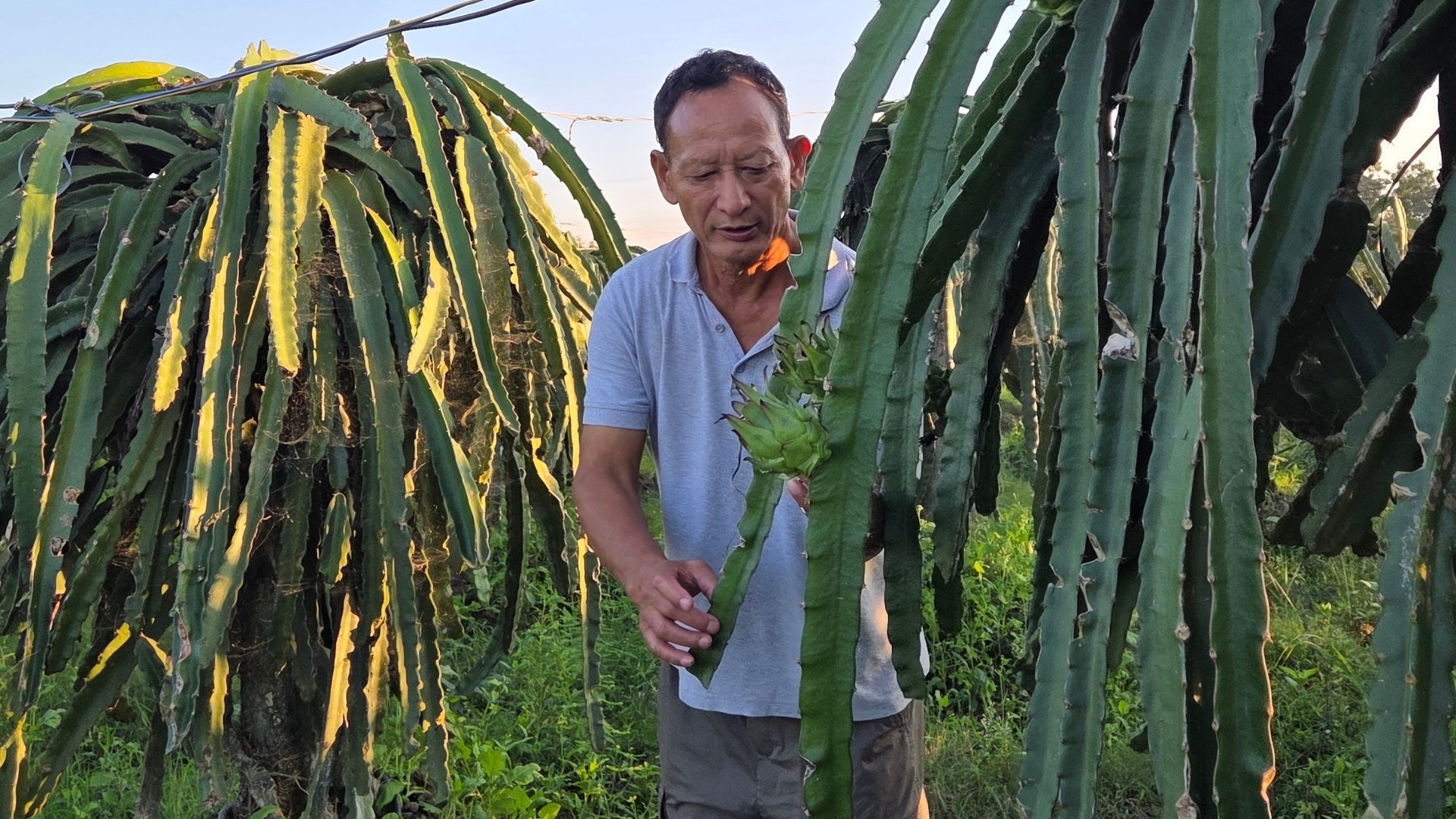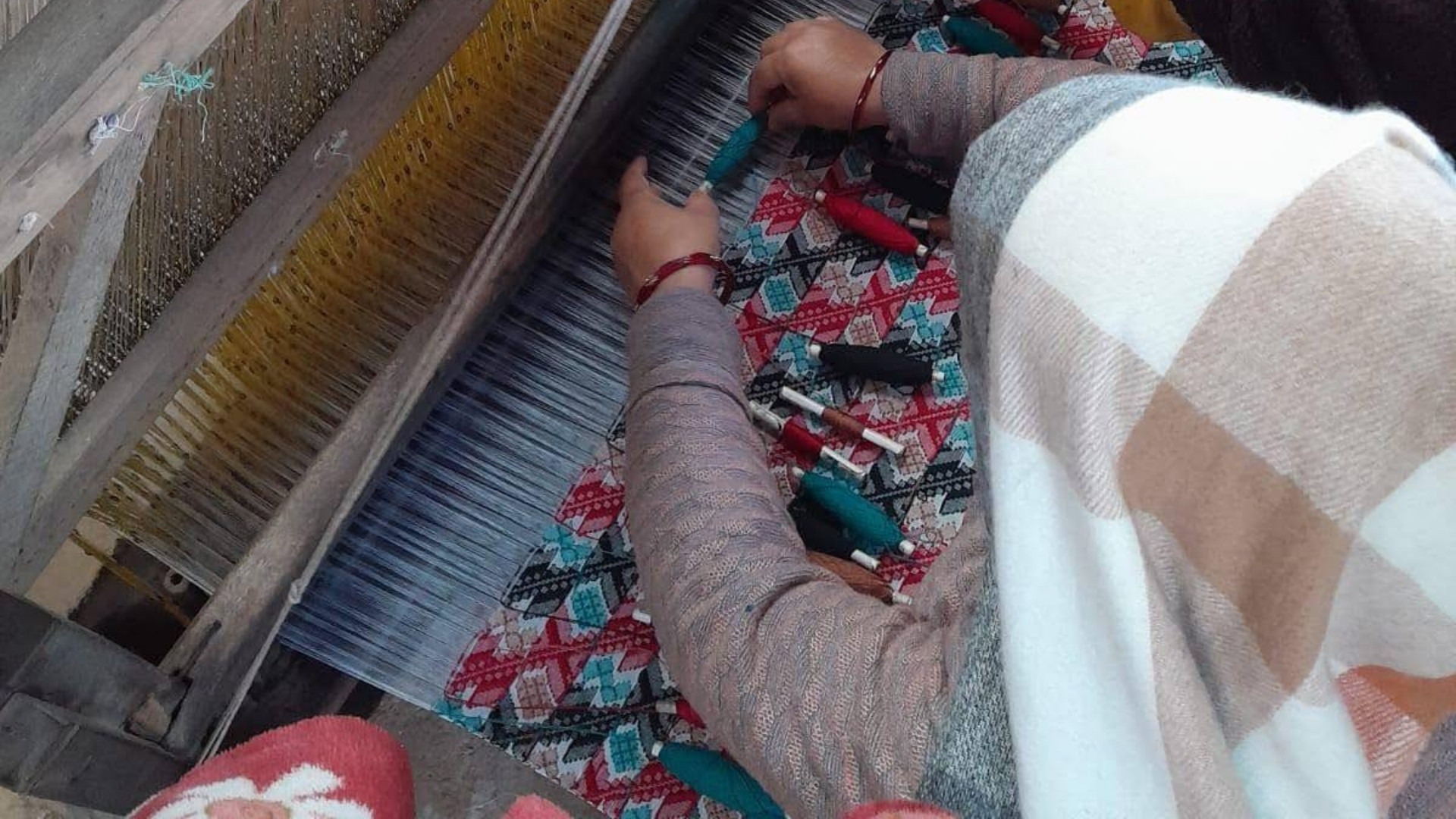A pheasant farm has been built by fencing the nearby forest with iron wire. At this farm, red, green, blue, and speckled pheasants run, hop, and fly around. Seeing hundreds of pheasants in one place attracts many visitors. Chudamani Kandel of Dhorpatan Municipality-2, Salamkot, Baglung, has been raising pheasants for seven years.
In 2018 (2075 BS), Kandel brought three hens and one cock pheasant from Kavre out of personal interest. He had not initially planned to raise them commercially. But after developing a desire to raise more, his pheasant-farming business has steadily expanded. Starting with four pheasants purchased for Rs 24,000, Kandel has now invested more than Rs 5 million in the business. He has fenced off ten ropani of land to raise the birds.
As the business grew, he began producing chicks on his own as well. Locals are impressed that Kandel has started raising wild pheasants on a commercial scale. Kandel, who entered permanent government service twelve years ago, is a health worker by profession. He tends to the pheasants in the mornings and evenings, while working at Burtibang Provincial Hospital during the day. Having been fond of catching and raising birds since childhood, Kandel’s farm now draws many visitors from far away.
Encouraged by the progress, Kandel formally registered his business as “Sano Swarga” (Little Paradise Farm) seven years ago. His farm currently has around two thousand pheasants of various sizes, more than 1,500 of which are ready for sale. He said that over two hundred birds were sold during the Dashain–Tihar festival season, and in recent times many customers visit the farm specifically seeking pheasants. While selling them was difficult in the beginning, he now enjoys a good market. Each pheasant is sold for Rs 2,000 to Rs 2,500, he said.
“This is a passion-driven profession for me. I started by raising just a few, and later, seeing the commercial potential, I built a farm and expanded,” he said. “In seven years I’ve learned how pheasant farming works — I’ve even begun to understand their behavior and their ‘language’. Things were tough at first, but gradually it has improved, and I’ve been increasing my investment.”
A few days ago, however, a leopard entered the farm and killed 150 pheasants, causing a loss of Rs 300,000, he shared. What began as a hobby has now become a source of income, bringing Kandel much satisfaction. His father, Tulsiram Kandel, also supports the business. Chudamani said he aims to sell Rs 1.5 million worth of pheasants this year. As the farm becomes more organized, demand has continued to rise, he added. Although he initially struggled with chick management, he now produces chicks himself through a hatchery. Even with increasing production, securing a reliable market remains challenging, he noted.


